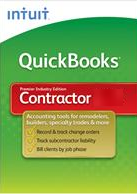"I’m An Independent Construction Contractor And I want To Be Paid Like One!"
As an accountant, whenever a client tells me they are thinking of hiring someone as an Independent Contractor it is like nails on a chalkboard because I have seen the results when that decision goes bad. And when it goes bad it is worse than moldy cheese in the hot room with no ventilation. So my advice is talk to your construction attorney before you treating anyone as a 1099 Contractor. You will be glad you did!
What is common is someone tells you “I want to be an Independent Contractor – Work when I want to! It’s only Part-Time!” There has been article after article written trying to explain the differences between what is commonly known as a 1099 Contractor and a formal employee and yet contractors are still paying a heavy price financially, emotionally and mentally because of the myths being told.
Most people think as a 1099 Contractor is really for when they are doing something trivial (less than $600 for any one person) it’s not that much. It’s no big deal. It really doesn’t count. It’s too much trouble to become an employee for something so small. Everybody saves money – so it’s ok!
Reality Does Not Always Work That Way
It is more proper to think in terms of Professional Services – as your supplier of services you may have to send to the Internal Revenue Service a 1099 form. These professional service providers can provide you with their Federal and State tax identification numbers to document they are licensed businesses.
Many industries the average sale is less than $600 so based on that thought pattern – Hurray – no taxes
Perform a Goggle search of the phrase “1099 Employee” and what may show up is “1099 Contractor”
The Internal Revenue has a defined set of rules on what is the difference between an “Independent Contractor” and “Employee” With all the of documentation in place a person could still be classified in the eyes of the Internal Revenue Service as an “employee”
http://www.irs.gov/businesses/small/article/0,,id=179115,00.html
http://www.irs.gov/businesses/small/article/0,,id=99921,00.html
Comparing State Rules And Federal Rules
This is not a case where trying to follow the Federal rules will keep you out of trouble with your local city, county or the folks in Olympia who oversee the Washington State rules. In many cases employers need to be in compliant with both Federal and State rules – depending on the situation. For example OSHA and WISHA safety rules in some areas both sets of rules could apply. Some other states allow the company to purchase their workers compensation insurance from a traditional insurance company.
In Washington State the rules are more clearly defined. Independent Contractor = Business Owner or the person is actually an Employee. Its services provided or it’s wages – from the first dollar earned. http://www.lni.wa.gov/IPUB/101-063-000.pdf
Why Is There Such a Distinction?
Workers Compensation component for workers injured on the job is run by the State of Washington. Washington State Department of Labor & Industries manages the workers compensation program.
In Washington State under certain circumstances business owners could be exempt from purchasing workers compensation (opt-in feature).
The Washington State Department of Labor & Industries works closely with The Washington State Department of Employment Security (worker’s unemployment insurance) http://www.lni.wa.gov/
Starting a Business in Washington State
It takes thought and planning to become a small business owner (Independent Contractor) in Washington State and we can assist you with most of it by clicking on Support here or at the bottom of this posting.
There are additional rules are for many businesses.
They may be required to obtain professional licenses, bond and insurance and maintain continuing education credits to stay current. http://www.lni.wa.gov/tradeslicensing/
We know, work with and support contractors. They have lots of rules and regulations to follow and some of them can be found at Washington State Department of Labor and Industries. They require contractors to have bond and insurance.
Options for additional short term employees
-
Use a temporary labor service
-
Hire a legitimate contractor
-
Add employee – pay all the taxes
Do you have a small job?
Some construction contractors are finding that by networking with other contractors and working together – they are able to increase production “on demand” without hiring additional staff. However, it is important to make certain they are following all the rules and regulations to stay out of trouble.
Conclusion
Before treating someone like an independent contractor we strongly advise you contact a good construction attorney. And yes I understand attorneys cost money; however, this is one time when it is money well spent. If you need a good construction attorney please see our Trusted Sources list by clicking hereor contact us and we can refer one to you.
Outsourced Construction Accounting Services
Outsourced Construction Bookkeeping Services
QuickBooks Expert Specializing In Construction Bookkeeping Services
About The Author:
Sharie DeHart, QPA is the co-founder of Business Consulting And Accounting in Lynnwood Washington. She is the leading expert in managing outsourced construction bookkeeping and accounting services companies and cash management accounting for small construction companies across the USA. She encourages Contractors and Construction Company Owners to stay current on their tax obligations and offers insights on how to manage the remaining cash flow to operate and grow their construction company sales and profits so they can put more money in the bank. http://www.fasteasyaccounting.com/sharie-dehart/
































